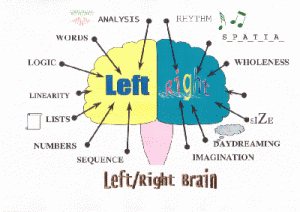Noninvasive Brain Stimulation May Treat Eating Disorders
 The use of (transcranial magnetic stimulation) TMS to modulate food intake is still a developing therapy, and it is important to keep in mind limitations in study designs when evaluating results. The negative results of this particular study might be due to several reasons: (1) The small sample size of 14 women resulted in a low power to detect differences between treatment groups, (2) The effects of TMS might last only for few minutes after stimulation, and thus no long-term effect on binges or purges were seen, (3) Higher doses of stimulation might be necessary to modify eating behavior significantly in subjects with bulimia compared with healthy subjects.
The use of (transcranial magnetic stimulation) TMS to modulate food intake is still a developing therapy, and it is important to keep in mind limitations in study designs when evaluating results. The negative results of this particular study might be due to several reasons: (1) The small sample size of 14 women resulted in a low power to detect differences between treatment groups, (2) The effects of TMS might last only for few minutes after stimulation, and thus no long-term effect on binges or purges were seen, (3) Higher doses of stimulation might be necessary to modify eating behavior significantly in subjects with bulimia compared with healthy subjects.
Evidence
There is an increasing amount of evidence that the decision to eat originates in brain regions associated with executive control. Although several factors influence food consumption-such as levels of blood sugar, hormonal changes, food availability, emotional state (including anxiety and depression), physical activity, and memory-these factors are finally processed in the neural networks associated with decision making.
Conclusion
Data that demonstrated the effectiveness of deep brain stimulation (DBS) as a treatment for anorexia nervosa. His more than two-year study of 20 patients whose previous psychiatric and pharmaceutical therapies had been ineffective showed that two months following DBS treatment, anorexic patients gained between 17 and 44 pounds, and many saw significant improvement in obsessive-compulsive and anxiety symptoms. These results question whether noninvasive approaches will be able to induce similar results.
Source: www.healthnews.com
 Eating Disorder Self Test. Take the EAT-26 self test to see if you might have eating disorder symptoms that might require professional evaluation. All answers are confidential.
Eating Disorder Self Test. Take the EAT-26 self test to see if you might have eating disorder symptoms that might require professional evaluation. All answers are confidential.